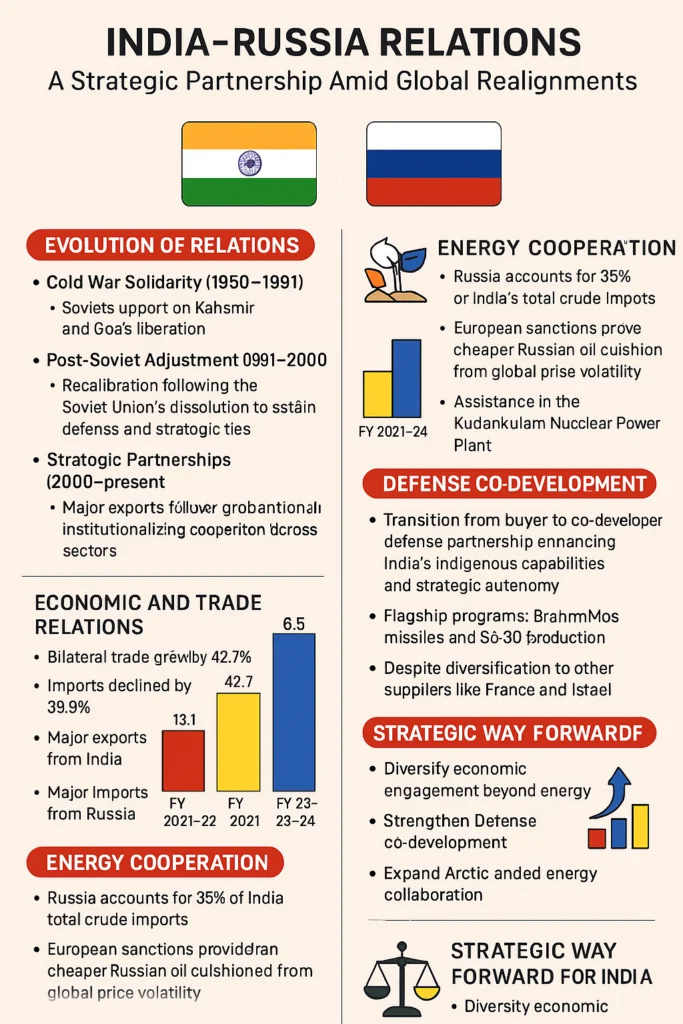Context:
As global tensions escalate over the Ukraine war and U.S. trade retaliation, Russia has offered India a 5% discount on crude oil, reinforcing energy ties amid mounting geopolitical pressure. The announcement comes as India’s External Affairs Minister S. Jaishankar visits Moscow, engaging in high-level discussions with Russian leaders on energy, trade, and regional security.
Backdrop:
- India's External Affairs Minister, S. Jaishankar, recently visited Moscow for the 26th session of the India-Russia Inter-Governmental Commission on Trade, Economic, Scientific, Technological and Cultural Cooperation (IRIGC-TEC).
- The visit unfolds amid heightened tension with the US, which slapped India with 50% tariffs—a combination of a 25% reciprocal duty and an additional 25% penalty specifically linked to imports of Russian oil. These commercial penalties have escalated a broader 2025 US–India diplomatic and trade crisis.
Implication of visit:
The visit underscores the importance of the India-Russia relationship, which has remained steadfast over the years. The two nations have a long history of cooperation in defense, energy, and trade. India buys approximately 35% of its crude oil from Russia, and Russia is a dependable supplier of military equipment to India.
About India – Russia relationship:
- India and Russia (then the Soviet Union) established diplomatic relations in April 1947, even before India’s independence. In its early years, India’s focus on industrial self-sufficiency found a natural partner in the USSR.
- The Indo-Soviet relationship deepened significantly during the Cold War. The USSR supported India in the 1965 India–Pakistan war and hosted the Tashkent Summit in 1966 to mediate peace. More significantly, during the 1971 Bangladesh Liberation War, the Soviet Union stood firmly with India while the US and China supported Pakistan. This culminated in the 1971 Treaty of Peace, Friendship and Cooperation, marking the peak of the relationship.
- The USSR also backed India in the UN Security Council, using its veto multiple times between 1957 and 1971—often on the Kashmir issue or Goa’s liberation. For Indian policymakers of that era, Moscow became a trusted strategic anchor.
- After the Soviet Union’s collapse, the relationship transitioned into a Strategic Partnership in 2000, which was upgraded to a Special and Privileged Strategic Partnership in 2010. Annual summits between Indian prime ministers and Russian presidents have become a fixture (except for a few exceptions), reinforcing diplomatic continuity. Since 2021, both sides have also held 2+2 ministerial dialogues, underscoring the multifaceted nature of the relationship in defence, energy, and diplomacy.
Conclusion:
With Jaishankar’s Moscow visit reinforcing long-standing ties and Russia offering discounted oil, India is navigating a delicate balancing act—safeguarding its economic interests, upholding strategic partnerships, and resisting geopolitical pressure. As the global order shifts, New Delhi is steadily asserting its place through diplomacy and resilience.







